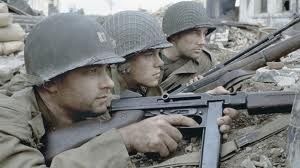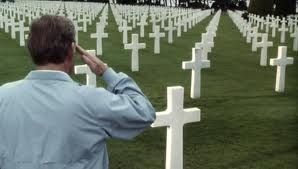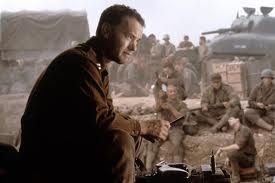
"The Master of the Revels despises us all for vagrants and peddlers of bombast. But my father, James Burbage, had the first license to make a company of players from Her Majesty, and he drew from poets the literature of the age. We must show them that we are men of parts. Will Shakespeare has a play. I have a theatre. The Curtain is yours."
A great film, and one I love to watch, with humor, sorrow, terrific dialogue, and wonderful performances.
It's a fictionalized portrayal of William Shakespeare (Joseph Fiennes) writing Romeo and Juliet, inspired by his relationship with Viola (Gwyneth Paltrow), a wealthy woman pretending to be a boy in order to act in his play (only men could appear on the stage at that time).
It is very romantic, with a tragic ending, paralleling Romeo and Juliet in various ways (Not quite such a traumatic ending, but they are parted forever, Shakespeare telling Viola tearfully, "You will never age for me, nor fade, nor die."). In fact, this is the only time I have actually enjoyed any sort of rendition of Romeo and Juliet.
The supporting cast (Geoffrey Rush, Colin Firth, Judi Dench as Elizabeth I, Ben Affleck, Tom Wilkinson, and Rupert Everett) really add to the movie.
This is the sort of movie that I not only own, but have watched repeatedly.
BUT, let's face it: Saving Private Ryan should have won.
1998 Saving Private Ryan

"You wanna explain the math of this to me? I mean, where's the sense of riskin' the lives of the eight of us to save one guy?"
"Tell her that when you found me I was here and I was with the only brothers that I have left and that there was no way I was gonna desert them. I think she'll understand that. There's no way I'm leaving this bridge."
It should have won. We all know it. It changed the face of war movies. Tyler described it to me as an extremely accurate depiction of war. Based on his emotional reaction to the movie as a combat veteran, I think it accomplishes something honest and real that is deserving of the Oscar.
 Life is Beautiful was another great choice this year, both charmingly funny and devastatingly sad as a father (Roberto Benigni) uses pluck and humor to keep up his son's courage and save his life while hiding him from the Nazis in a concentration camp:
Life is Beautiful was another great choice this year, both charmingly funny and devastatingly sad as a father (Roberto Benigni) uses pluck and humor to keep up his son's courage and save his life while hiding him from the Nazis in a concentration camp:Guido [Getting packed into the train to the concentration camp]: You've never ridden on a train, have you? They're fantastic! Everybody stands up, close together, and there are no seats!
Giosué Orefice: There aren't any seats?
Guido: Seats? On a train? It's obvious you've never ridden one before! No, everybody's packed in, standing up. Look at this line to get on! Hey, we've got tickets, save room for us!
Another feast or famine situation. I suppose there are worse things than having three Oscar-worth movies to choose from in a year.
A good rule of thumb: When in doubt, go with Steven Spielberg.
Tyler has agreed, as the person I know most capable of truly reviewing Saving Private Ryan, to provide a guest review. Enjoy the magnificent writing of my talented husband:
Saving Private Ryan Guest Review
Written by Tyler Smith
Saving Private Ryan was released in 1998 and is, in my opinion, the most realistic war movie ever made. It was also the first movie to show what war is actually like and not romanticize it at all. It opens in modern day Normandy with a veteran walking near the battlefield with his children and grandchildren. He walks to a grave and kneels beside it in tears remembering the events in his life that had occurred 54 years previous. The movie does not tell you who this man is but you assume it is Tom Hanks’s character because in the next scene it shows a close up of his face while he is in a Higgins landing craft being ferried to Omaha beach.

It is at this point that the movie kicks the viewers right in the teeth. As the ramp drops on the landing craft the carnage begins, and I mean carnage. I have been in combat and I can say that the only thing missing from the beach scene is the smell. I guess it would need to be much louder, but watching it you get the point. Things are very confused on the beach but eventually Tom Hanks manages to breach the German (Actually the soldiers defending this stretch of beach were Czechoslovakians) lines. This scene left me feeling worn out and disgusted when I first saw it. It was war, real and pure, with no glory or heroes, only shell shocked survivors.
At this point the movie shifts and begins to pose the main question: What is the life of one man worth? Hanks is asked to pick a team of 8 soldiers to go deep behind German lines and find a single paratrooper who has lost all of his brothers to the war, all killed within a couple weeks. Back story for the mission, there were five brothers with the last name of Sullivian who all joined the navy and wanted to be on the same ship. They were allowed to serve together but when their ship was sunk and they were all killed it was decided that family members would not be allowed to serve in the same units together, for fear of the war wiping entire families away in single afternoons like had happened to the Sullivian brothers, and if there were multiple deaths in one family the sole survivor would be brought home ASAP.
The team is only given a name and a vague possible location. Along the way they lose two men KIA and tensions run high, finally boiling over when a German is captured after a sharp firefight. Here Tom Hanks reveals what his profession was in the US, a question that has been the subject of a pool among Hanks’s soldiers. They decide to let the German go and not take revenge for their fallen Medic. They decide that killing the German will not help them in their quest and they let him walk off unarmed.

Eventually they find Private Ryan as part of an ambush team and tell him about their mission. He thinks it is a dumb idea, sending 8 men to find and retrieve one. He does not feel that his life was worth those of the men that were lost trying to find him and refuses to leave his unit before a critical battle to hold a bridge. Hanks agrees to stay with the beleaguered Airborne to help defend the bridge, but immediately afterwards plans to return to his unit with Ryan in tow.
What followed was a brutal, desperate, disturbing battle of survival in which darn near everyone gets killed. The Americans hold the bridge but Hanks is killed (shot by the prisoner he earlier released). Ryan survives the ordeal and becomes the old man that the film begins with.
As I stated earlier, the central question in this movie is: What is the life of one man worth? You see dozens of men violently killed to the point where you are convinced that if put in a similar situation, your life span would be reduced to minutes if not seconds, yet Hanks’s team goes to titanic efforts to save one among hundreds of thousands. I think the answer is one man’s life is priceless, but war is a bloodthirsty, rampaging, uncontrollable beast destroying all it touches and while we believe life to be endlessly precious, war cares not.
From one combat vet to another, well summarized, T. I think I had said the same thing about the opening invasion scenes: the only thing missing was the sometimes complicated and hard to describe smell of combat. The hand-held camera effect was a pretty good treatment. All a soldier sees, in an environment like this which gets pretty surreal, is that part of the battle going on in front of his two eyes. When your head is down, you don't see very much, but the smells are pervasive and linger in your mind forever. My ears often were ringing and I would temporarily lose hearing acuity, so sound was distorted. I thought it was a very good movie that was hard for me to watch.
ReplyDeleteYeah pop, in rereading I don't think I emphasized how overwhelmingly loud combat is, to the point where your ears just stop working, or how painful jarring it is being constantly exposed to explosions.
Delete